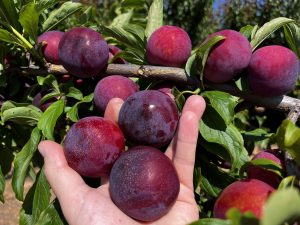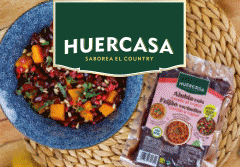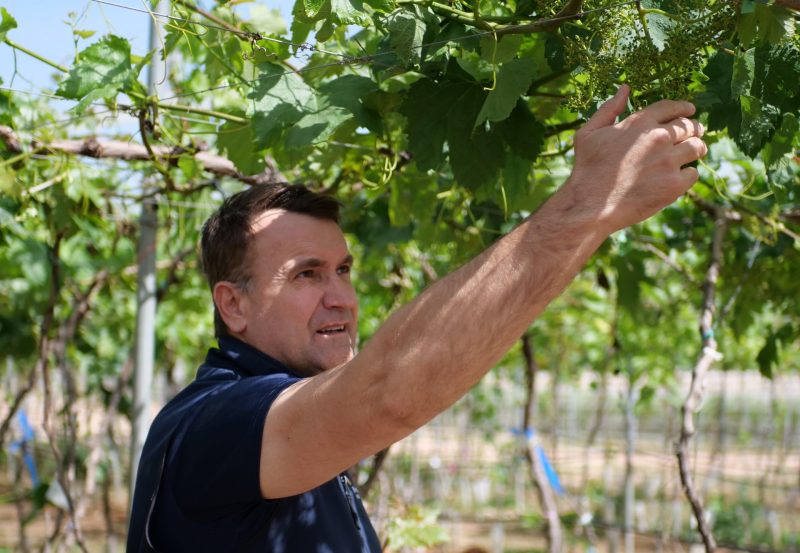PSB is taking a strategic turn in its business approach and will cease its production activities to concentrate all its resources—both human and material—on the creation of new varieties, an ambition driven by its co-founder, Stéphane Buffat. Historically, the company has been both a prominent stone fruit producer and a hybridizer.
Expanding the flat nectarine range
PSB continues to actively develop its line of flat nectarines, already known for standout varieties such as Luisella, Sekoya, Bachata, Dooly, Canoppe, and Tintosa, through an ambitious programme of 40,000 hybridizations over three years. The goal is to offer a range that covers the period from early May to late September.
The strict selection criteria for new varieties include impeccable flavour quality, firmness and excellent postharvest shelf life, a perfect pistil closure, and fruit with a good size to optimise yields.
Adapting apricot varieties to climate challenges
In line with its commitment to innovation, PSB is investing in the development of varieties adapted to climate change, with lower winter chill requirements, better drought tolerance in summer, and resilience to excessive heat in autumn. The focus is on sharka-tolerant, self-fertile fruits with exceptional flavour to restore consumer confidence and boost consumption. Among the most representative varieties are Nelson, Artisto, Gaspar, and Domino.
Late-season nectarine: responding to market needs
PSB’s longstanding work with nectarines has helped fill a market gap with high-quality late-maturing varieties that ripen in August and September. Tenerif, Sidonia, Hawaii, Nefertiti, Tahiti, Chubby, and Alegoria are among those meeting this demand.
New programmes: plums, cherryplums and babyplums
PSB is broadening its scope with a programme dedicated to plums, cherryplums, and babyplums, with 20,000 hybridizations annually. New Japanese and European varieties such as Rossamor, Azulis, Pallatina, BA345-5, and CR18-19 have already emerged. The goal is to develop large-sized, productive, self-fertile fruits with a guaranteed brix level of 15–16°, a key trait in response to the decline in pollinating insects caused by climate change.
RELATED NEWS: PSB, 25 years serving agriculture
In the cherryplum and babyplum category, the focus is on naturally sweet varieties reminiscent of red or exotic fruits—often with red flesh—and long postharvest shelf life. Storage trials carried out with partners in South Africa and Chile have enabled evaluation periods ranging from 20 to 50 days. PSB has already developed market-ready varieties such as Strati 4, Orelys, BA91-16, and Montecarla.
Developing low-chilling cherries
For the past four years, the Murcian company has been working on cherry varieties requiring low chill hours (between 200 and 400), a crucial criterion for adapting to climate change. The objective is to achieve fruits that combine flavour, firmness, shelf life, and a crisp texture. This year, the results of PSB’s crosses and selections will allow the commercial release of new varieties.
Seedless table grapes: a promising programme
A programme launched five years ago on seedless table grapes is beginning to bear fruit. PSB aims to offer red, green, and black varieties, both early-ripening and positioned in market windows currently lacking in high-quality options. This year, the first large-scale planting data on selected varieties will be available.
With these numerous initiatives, the company reaffirms its pioneering role in fruit hybridization and continues its commitment to delivering innovative fruits adapted to future challenges—both for growers and consumers.



















